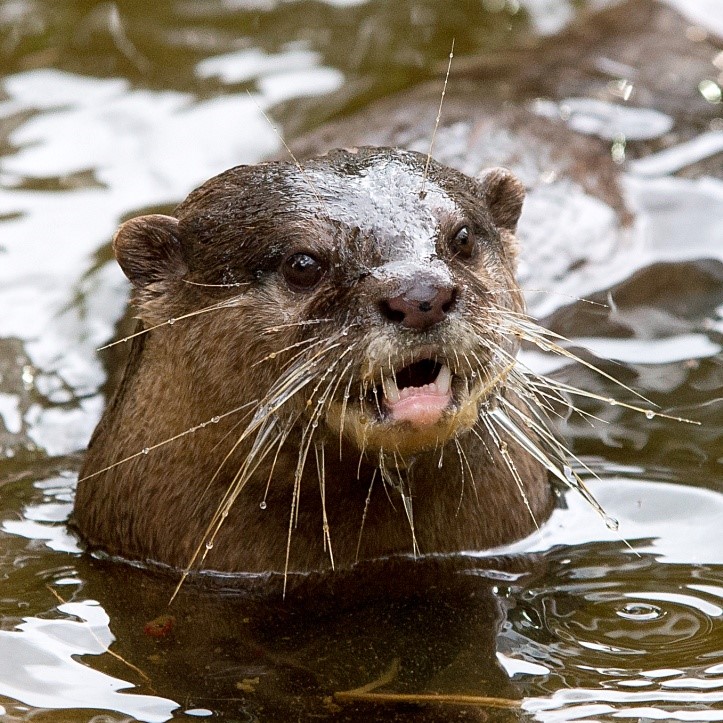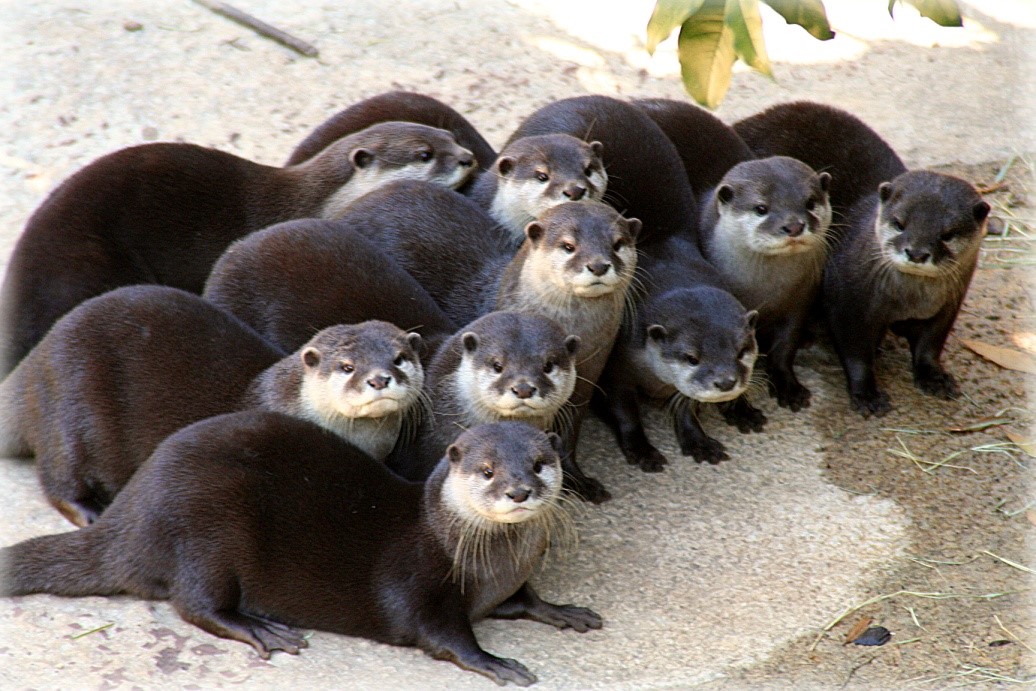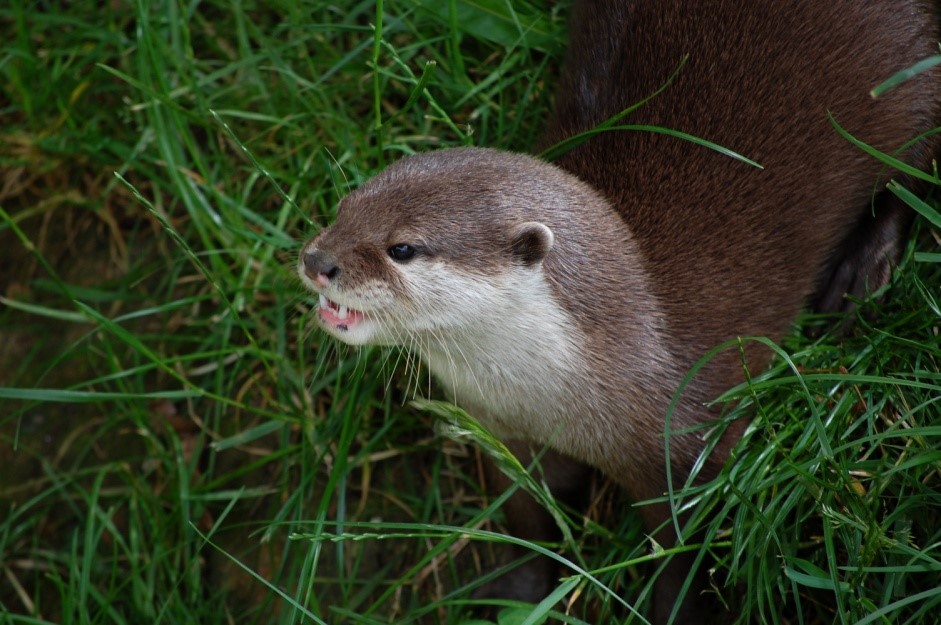States Where Pet Otters Are Legal

“Otter 0514 2216” by Ross Elliott is licensed under CC BY 2.0
Otters have unmistakable appeal. They seem to dedicate most of their existence to having a good time and zip through their aquatic home with athletic ease and grace. Due to this, some people might imagine that they would make great companion pets, akin to a water-loving breed of dog.
Can You Own a Pet Otter?
The unfortunate reality is that there is only one species of otter that can possibly be owned—the Asian clawed otter—and even finding this species is difficult. The best way to go about getting one is to contact an exotic animal broker. Removing river otters from the wild in North America is a bad idea, and more likely to be illegal even if the state allows captive-bred otter ownership.
The charismatic sea otters are federally illegal due to the Marine Mammal Protection Act. Asian otters are not federally illegal because they are not marine animals, but they are certainly not legal to own in every state. On top of this, even relative to other “zoo” type animals, otters would be incredibly challenging to own in your home, possibly with an exception if you can afford a wonderful outdoor enclosure with a drainable water source and temperature controls. Keep in mind that this water feature would also have to have good containment.

“Small Clawed Otter” by Kathleen Franklin is licensed under CC BY 2.0
- Missouri This is a state that surprisingly allows private owners to possess certain exotic and native animals if they acquire a Wildlife Hobby Permit specifically for that species. The permit only allows one animal. Missouri’s laws are relatively extensive and animals are groups by classes. Class I Wildlife includes bullfrogs, green frogs, certain birds and native mammals and reptiles. Class II Wildlife involves ‘dangerous’ animals like mountain lions, bears, and native venomous snakes. While river otters are specifically mentioned as an animal that can be owned with a permit, this may only apply to native otters. This would mean that Asian otters are either legal without a permit or perhaps covered under another rule. The permit requirements for river otters include following specific cage size guidelines.
- North Carolina This Southern state has few bans on many exotic animals. For the most part, native mammals are regulated and are not allowed to be possessed without a permit that is only given for educational, scientific, or exhibition purposes. Asian otters should not be regulated according to the laws in North Carolina; however, most counties or cities have bans on exotic animals or permit requirements, so it is extremely important to find out this information.
-

“Otter @ Africa Alive, Suffolk” by Tim Parkinson is licensed under CC BY 2.0 - Florida This warm state is relatively good for small exotic pet owners. The larger and carnivorous animals are banned from being owned by the general public unless they can prove experience and are using the animal for exhibition purposes. Florida groups wildlife into classes, with Class 1 being the most dangerous species, and Class 3 being animals that the general public can own when they acquire an easy-to-obtain permit. All species not listed in Class 1 and 2 are automatically in Class 3, which includes otters. There are specific requirements for otters, along with ferrets, genets, mink, and others regarding enrichment.
- Michigan In Michigan, otters appear to be covered under ‘game animal’ laws. It is unclear if this relates to only native otters or all otter species, but the latter can be assumed. If this is true, you can keep an otter as long as you acquire a permit that authorizes holding game animals in captivity. There are specific enclosure requirements detailed; the enclosure for one otter needs to be 10’x8’x6’, increasing the cage size horizontally by 40 square feet for each additional animal. Each animal also needs to be provided with a “den site” that is 4’x4’x4. These seem like reasonable minimum requirements for the proper care of otters.
- Nebraska This state does list river otters as a species that can be legally owned with a Captive Wildlife Permit. Whether or not this only refers to native otters is not clear, however, these animals do not appear on the prohibited wildlife list for which permits will not be issued. This means that Asian otters are either legal with an obtainable permit or they are not regulated. The permits cost $33 and a conservation officer has to inspect your enclosure.
- Nevada This state is the best for someone interested in owning larger carnivores (with a few exceptions, such as mountain lions, coyotes, and bobcats) that are illegal in most U.S. states. While foxes and alligators are prohibited, lions, bears, and elephants are not. All otter species also do not appear to be illegal in the state. Even “marine mammals” are listed as species that don’t require a permit for import and export from the state, although marine animals are federally illegal to own.
- North Dakota If you want an otter in this state, you will ‘probably’ need a Non-Traditional Livestock Permit. North Dakota law also has class categories for non-domestic animals, with category 3 being the more larger dangerous animals. Otters fall in category 2, where they are specifically listed. It is stated that a permit to possess the animals is required only for some of these species. To get a permit, you must have your facility inspected and approved prior to acquiring the otter. It is not known what the standards are for passing this inspection.
Don’t See Your State Listed?
This is not a comprehensive list and only includes states where otters are legal with relative certainty. However, laws can change and it is always possible that otters can be regulated under another unexpected law, so if you are serious about getting an otter as a pet, it is best to check with authorities. Otters are rare as pets, so you shouldn’t even rely on second-hand information from other exotic pet owners. A good place to start checking for information on pet otter laws is under ‘fur-bearing’ terms. Native otters are hunted for their fur and are often regulated in this category. For example, New York doesn’t mention otters in its exotic pet ordinance but states that live otters cannot be possessed in its trapping section (No person shall possess any live beaver, otter, mink, muskrat…). As can be deduced, permits are generally required in most states where they are technically legal.







